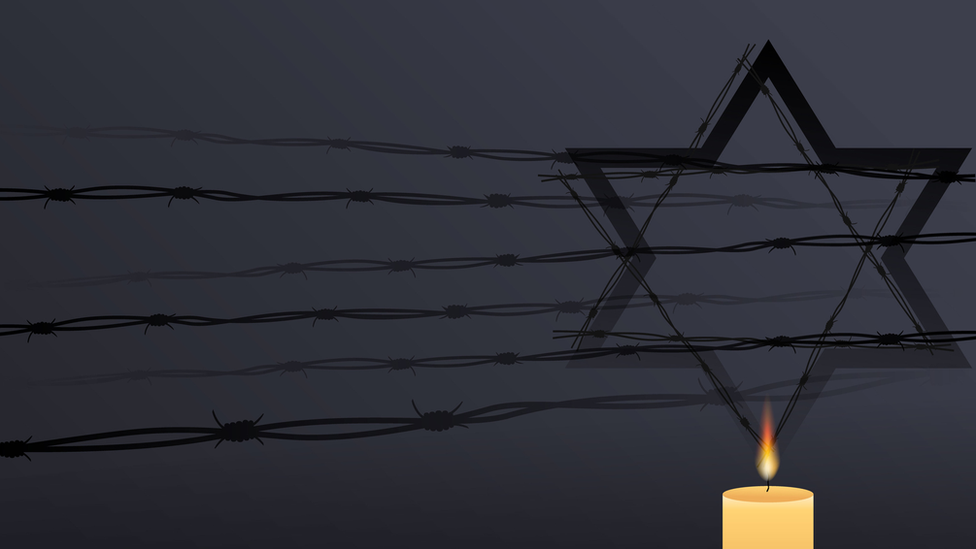Holocaust: 75 years since the liberation of Auschwitz
- Published
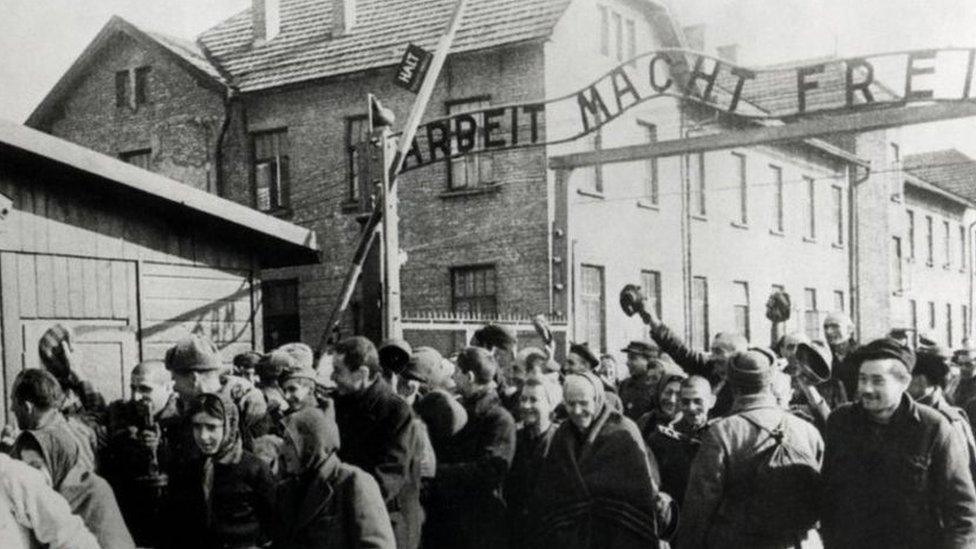
A famous gate at the Auschwitz camp reads 'Arbeit macht frei', which means 'work sets you free' in German
Today marks 75 years since the end of the Holocaust.
It was a period during World War Two when millions of people were murdered for being Jewish.
On 27 January every year people around the world come together for Holocaust Memorial Day, to remember all those who died or were affected in that time and as a result of other genocides.
It's also the 75th anniversary of when the largest concentration camp, Auschwitz, was liberated, which means its prisoners were set free.
WATCH: How Jewish people were treated during the Holocaust
What was the Holocaust?
During World War Two, the leader of the German Nazi party, Adolf Hitler, ordered the murder of six million Jewish people from countries across Europe.
He did this because he wanted to try to wipe out the entire Jewish population because he didn't like them.
The Jewish people he targeted had done nothing wrong. They were attacked simply because of their faith.
The Nazis also killed millions of other people just because of who they were. For example, Roma gypsies, disabled people and gay people were also targeted.
These people were put into prisons called concentration camps by Nazi soldiers who then killed them because they believed they were inferior human beings and wanted to get rid of them.
Deliberately killing a large group of people like this is called "genocide".
Nearly 7 out of every 10 Jews living in Europe at the time were killed.
Ricky hears two stories from Holocaust survivors
How did the Holocaust end?
The Nazis tried to hide evidence of their crimes as soldiers fighting against Germany made their way across Europe and began to discover the concentration camps.
Knowing they were under threat and likely to be defeated, the Nazis destroyed the camps.
They forced surviving prisoners in Poland to walk back to camps in Germany, which led to many prisoners losing their lives.
The Nazis were not able to hide what they had done, though, and it wasn't long before the world learned of the extent of the Holocaust.
Majdanek was the first camp to be freed in the summer of 1944.
Many of those who were freed from the camps died even after the liberations as they were so ill from the way they'd been treated.
Life would be extremely difficult even after the end of the war.
What was Auschwitz?
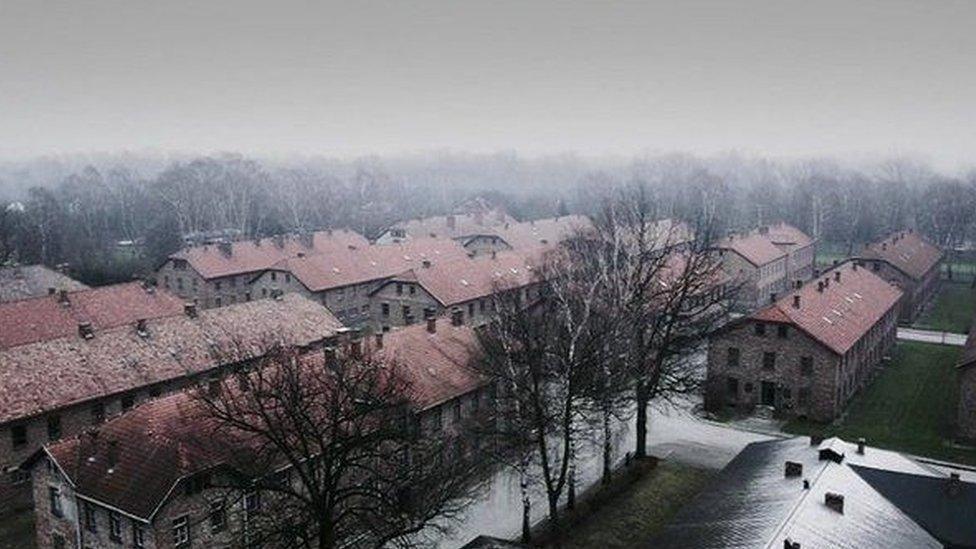
Aerial footage of Auschwitz Birkenau
Auschwitz was originally a Polish army barracks but it was invaded by Nazis in September 1939 and turned into a prison.
It's widely known as the most famous of all the concentration camps because it was the biggest and became the site of huge gas chambers which were used to kill people.
People from all over Europe were crammed into wagons that didn't have windows, toilets, seats or food, and taken there.
Historians believe just over one million people were murdered there.
Why is 27 January such an important date?
The reason Holocaust Memorial Day is marked on 27 January is because it was the date in 1945 when the soldiers fighting against the Germans took over the largest Nazi concentration camp called Auschwitz-Birkenau.
They then freed all the prisoners there who were still alive.
Anti-semitism is when a person who is Jewish is treated unfairly either through words or actions because of their faith.
It's an important day because it's a chance to remember all the Jewish people who died. It also gives people the opportunity to reflect on the importance of not spreading messages of hate, or to exclude people because of things like the colour of their skin or what religious beliefs they have.
The Holocaust Memorial Day Trust says "we also think about those who survived to make sure that we learn from their experiences, when it comes to the decisions we make today."

A famous gate at the Auschwitz camp reads 'Arbeit macht frei', which means 'work sets you free' in German
The day is also an opportunity to remember the millions of people who have been killed or affected by other genocides in the world, in places like Cambodia, Rwanda and Bosnia.
If you're upset by anything you've read you can get advice here.
- Published15 October 2020
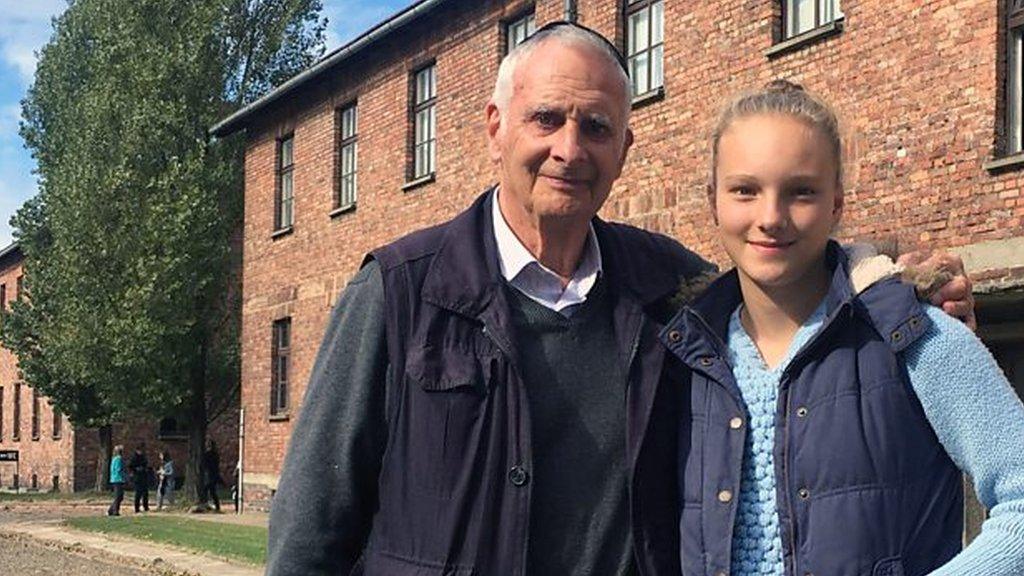
- Published21 January
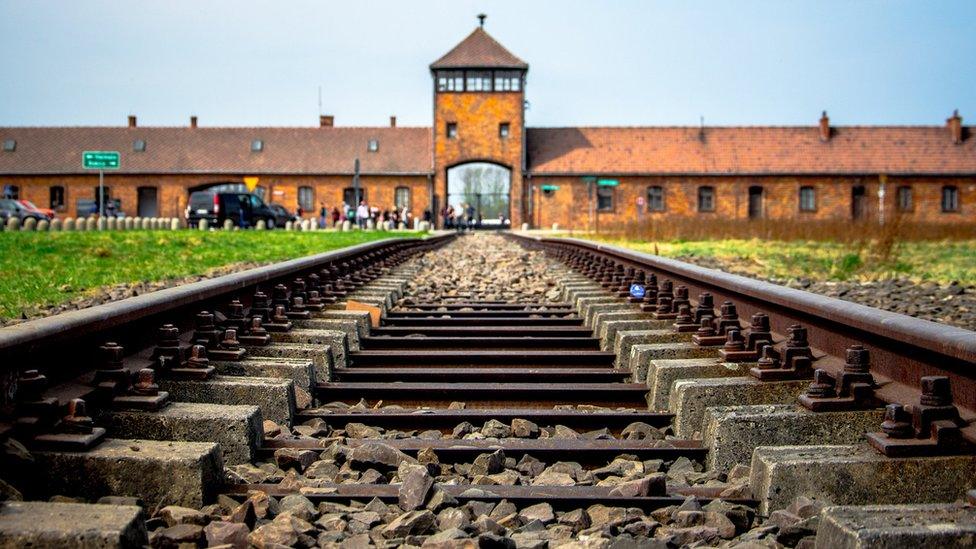
- Published27 January 2023
